The next two weeks will be chock full of major Supreme Court decisions that will decide how America looks and functions in the future. All eyes, of course, are focused on Dobbs vs. Jackson Women’s Health Organization, which started out as an attempt by pro-aborts to protect their ability to kill more babies and, based on the draft decision by Justice Alito that was leaked in early May (Politico Tries to Pre-Game SCOTUS by Publishing Leaked Draft Opinion Overturning Roe), may end up throttling Moloch himself. Next, there is a gun rights case that seems guaranteed to dismantle the unconstitutional “may issue” laws that prevent all but a sliver of American citizens from carrying firearms outside the home (Supreme Court Conservatives Maul New York’s Restrictive Concealed Carry Law in First Major Second Amendment Case in a Decade). Finally, a school choice case from Maine (The Left Goes Nuts as the Supreme Court Seems to Signal That Their Monopoly on Propagandizing Kids Is at an End) will, along with Hosanna-Tabor, Trinity Lutheran, and Espinoza, demolish most of what is left of the Blaine Amendments and forbid states from treating private secular schools more favorably than religious schools.
Not much, however, has been said about a school prayer case originating from Washington called Kennedy v. Bremerton School District. I cover the details of the argument in Supreme Court Seems Poised to Hand Victory to Coach Fired for Praying at the 50-Yard Line. The facts are sort of murky, but the argument is simple. Can an American citizen offer a prayer at a sporting event where no one is required to pray with him, or can his employer, a public school district, fire him if he does?
The decision, expected to be 6-3 in favor of the right of the football coach to offer a prayer, will demolish some of the more stupid Supreme Court decisions on religion. Naturally, the left sees this as an existential crisis. While they arrogate to themselves the right to groom your children, they scream “Armageddon!” at the mention of the name of Our Lord and the spread of His teachings.
SCOTUS will soon rule on the case of a public school football coach who wants to pray on-field after games.@GregBishopSI on Joe Kennedy, the machine backing him and the expected result: a win for Kennedy and an erosion of a bedrock of American democracy: https://t.co/H8tEoQauZh pic.twitter.com/XCmjK0qQsO
— Sports Illustrated (@SInow) June 13, 2022
This article is long, 7,000+ words, and seems more focused on discrediting the plaintiff in this case, Joe Kennedy. The only reason I slogged my way through the morass of nothingness was to find out how in the hell a man praying in a football stadium could possibly qualify as “an erosion of a bedrock of American democracy.”
This is how Sports Illustrated frames the issue.
[Lead lawyer for Bremerton School District and the president/CEO of Americans United for Separation of Church and State, Rachel] Laser’s wider argument starts with a baseline, for both camps: two sides of a country that stand on opposite ends of a vast and growing and existential divide. Both push for their version of “rights.” Both cling to the same document, the U.S. Constitution. But Laser makes a critical distinction in how they push. One side uses facts, she says. The other, she believes, distorts them. (Four scholars agreed.) She (and three of the scholars) define the latter side as “white Christian nationalists.” They believe America was created by a preeminence of people like themselves and should always have laws in place that reflect America’s origins.
Many of those nationalists, Laser continues (and four scholars agree), live in a country they claim to no longer recognize, and, many of them see an “other” America that now exists in its place. One that elected its first Black president (2008), embraced the end of a white Christian majority (’14), hailed marriage equality (’15) and elected a record number of women to Congress (124 last year).
While its numbers shrank, the Christian conservative base was reinvigorated and emboldened over the past seven years, anyway. That owes mostly to Donald Trump’s presidency, his proposed Muslim ban and anti-immigration stances, his border wall and inciting rhetoric; and his appointments of religious conservatives to the judiciary’s most powerful positions.
The Christian conservative undertaking—described by three Kennedy supporters to SI as “a war”—led to an informal playbook, a strategy that Laser refers to as “jujitsu” and others (including two scholars) describe as “white Christian fragility.” At its core, they argue, is an intentional misdirection built not on facts but fear. Like when religious conservatives claimed that advocates for same-sex marriage aren’t in favor of equal rights but anti-religion. Groups fighting for legitimate equality are framed as wanting to take from Christians. This logic twisting makes the arguments zero-sum and assumes that Christian nationalists have lost their rights—all to maintain a culture-war strategy that hinges on a gross oversimplification of stakes.
“That’s what this case is about,” Laser says. “A movement that is so determined they are not willing to stop. They are willing to destroy our democracy to achieve their ends.”
The movement, according to Laser and three scholars, is backed by a billion-dollar industry that brands its argument not under “Christian nationalism” but the more palatable “religious freedom.” Laser (and three scholars) say that’s part of the disinformation campaign. She also points to briefs filed in support of Kennedy on the SCOTUS docket from organizations that have publicly argued in favor of Muslim travel ban and against voting rights, LGBTQ rights, and to overturn Roe v. Wade. She describes the ledger as a “who’s who of religious extremists in this country.” (Responding to that characterization via email, First Liberty special counsel Jeremy Dys wrote, “I have not heard that. What I know is that we would represent [Kennedy] regardless of his faith.”)
Got it? If you want to ban public prayer, you are true to the Constitution and American democracy. If you want to pray in public, you are a “white Christian nationalist” obsessed with “white replacement theory” and quite possibly a virulent racist in the process.
Lawrence Tribe, who, when not talking about Trump, can appear to be lucid, occupies the middle ground of the “experts” interviewed by Sports Illustrated. He doesn’t support the bizarre stance pushed by Laser, but he thinks her view should prevail.
When Trump appointed another conservative judge, Amy Coney Barrett, to the Supreme Court in October 2020, the conservatives added another member to their team. More rulings in Kennedy followed, as did more appeals. But in Sept. 2021, as foreshadowed, SCOTUS put Kennedy on its docket—only with an even larger conservative majority to weigh in.
To Tribe and three of the other scholars, that’s not a good thing. He predicts SCOTUS will rule, 6–3, in Kennedy’s favor. And if that happens, he says, America “will look much more authoritarian.” He highlights Roe v. Wade, as an example, pointing out that those in favor of overruling the decision are a clear minority (around 33% according to a recent Gallup poll). “Because of gerrymandering, they’re exercising the majority of the power, and they have a court with true believers,” he says. “The country is rapidly heading into a less-and-less situation. It’s less democratic and less inclusive.
“And, in the long run, that will make us all less free.”
I don’t want to beat a dead horse here, but the “separation of church and state” is not in the Constitution. The way it is interpreted by the Bremerton School District, and many of the experts quoted in this story doesn’t reflect most of the history or any of the founding of the United States. Yes, there were some “Deists” that the left likes to trot out as proof that the Founders weren’t religious, but they were a minority. At the time of the Founding, all states required office-holders to be Christian. Over a third of the states levied taxes to support the established church in that state. In the Colonial era, most colonies fined people for not attending church, I’m not sure when that ended, but the fact that it was commonplace would have been known to the Founders. Blue Laws covering most commercial activities existed well into the 1970s and still exist for liquor sales in nearly half of the nation; the Supreme Court has upheld these laws.
Taken in context, Jefferson’s (in)famous letter to the Danbury Baptist Association is not referring to the absence of religion from government; he is clearly referring to the necessity of preventing the government from meddling in the affairs of denominations or coercing the conscience of the individual towards a particular faith. In other words, even Jefferson didn’t contemplate barring religion and religious observance from the public square.
While not part of the Supreme Court argument, I would contend that every day, Americans at school and work are confronted with an endless barrage of proselytizing on behalf of any number of Modernist and Secularist denominations, from Marxism, Climate Change, and mask-nazism to the Diversity, Inclusion, and Equity grift. They all have the tenets of a religion: creation, original sin, fall from grace, redemption, and salvation. They all have commandments that you must adhere to and shibboleths you must master on pain of censure or expulsion. If anything, Coach Kennedy tried to put an actual religion on the same footing as the existing state-sponsored religions.
What makes this more absurd is the same people who claim a football coach praying alone, or with some members of both teams, on the playing field makes some spectators feel excluded, or uncomfortable are perfectly happy defending “drag queen story hour” at the public library, teaching gay sexual methodology and transgenderism to students, and requiring everyone to agree that there is such a thing as “birthing people” and a woman swimmer named “Lia Thomas,” and calling you a bigot if you object or feel like showering with lighter fluid and a Brillo pad after listening.
I hope the decision in this case starts rolling back Anthony Kennedy’s overly hostile-to-religion jurisprudence that ended up barring prayers from school altogether. At a minimum, it will open enough of a door that we have the room, like with Dobbs and the Texas Heartbeat Law, to start dismantling unconstitutional and unconscionable restrictions on the free exercise of religion.
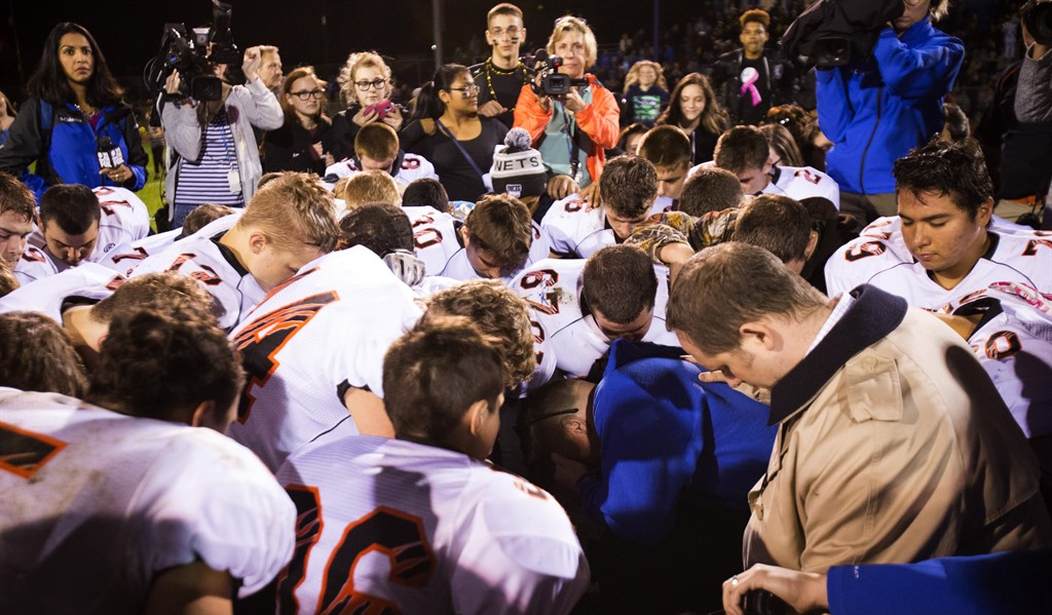
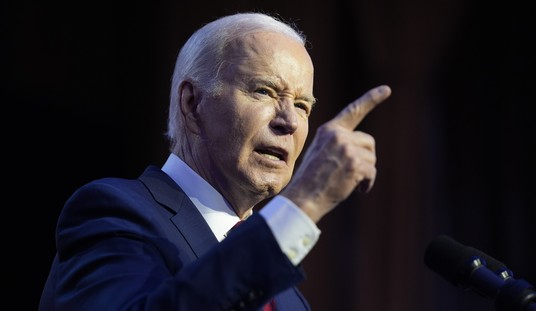
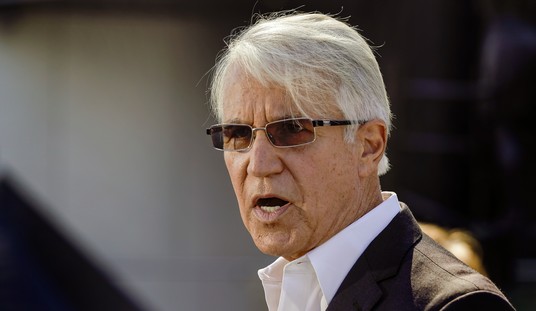
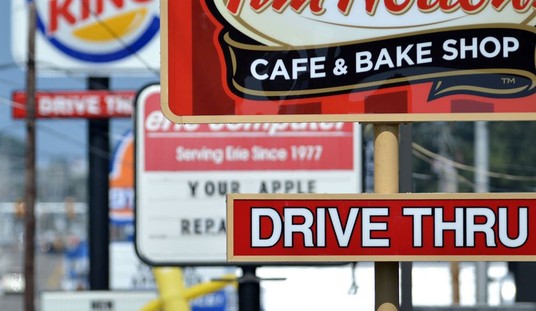

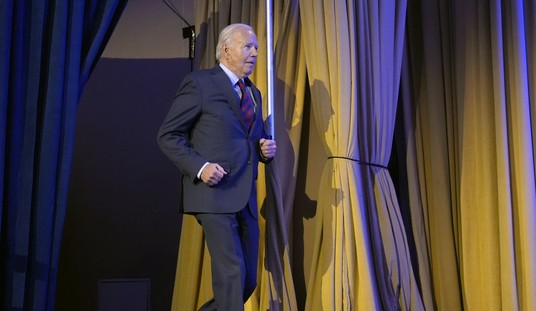
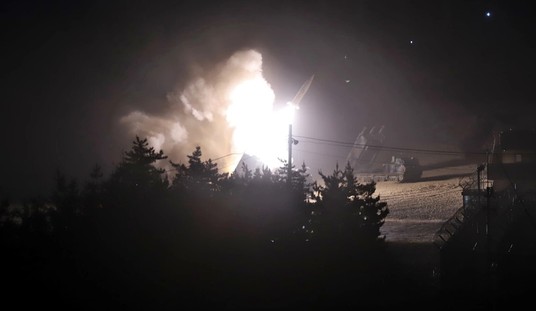
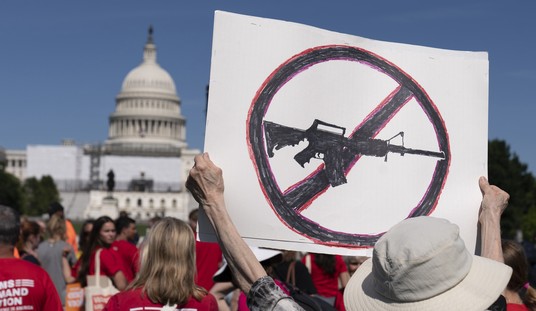
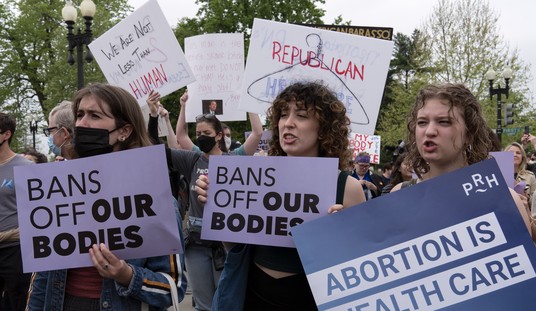
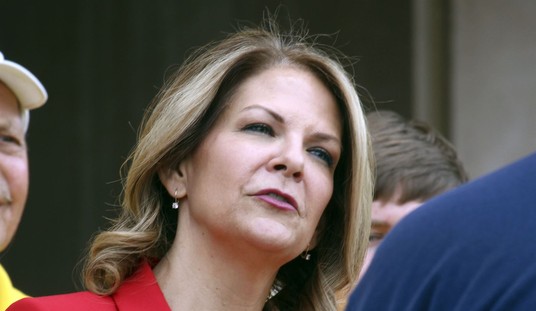




Join the conversation as a VIP Member